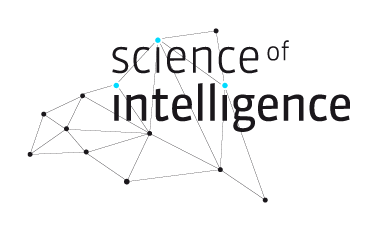
Rebecca Lazarides
U Potsdam, Educational Science
mail: rebecca.lazarides@uni-potsdam.de
phone: +49 331 977 2132
Rebecca Lazarides is an educational researcher with interests in learning and instruction, motivational and cognitive learning processes in adolescence, gendered socialization processes and motivational development in education. Her research connects the fields of educational psychology, educational science, motivational and cognitive psychology. Within SCIoI, she will investigate the role of instruction and feedback for cognitive learning processes, intrinsic motivation, and attention.
At SCIoI, Rebecca is working on Project 06, Project 31, Project 50
SCIoI Publications:
Yun, H. S., Taliaronak, V., Kirtay, M., Chevelère, J., Hübert, H., Hafner, V. V., Pinkwart, N., & Lazarides, R. (2022). Challenges in Designing Teacher Robots with Motivation Based Gestures. 17th Annual ACM/IEEE International Conference on Human-Robot Interaction (HRI 2022). https://drive.google.com/file/d/1IUxuJMiReGpGnYvaXa918lWF_t11aRLN/view
Yun, H. S., Hübert, H., Chevalere, J., Pinkwart, N., Hafner, V., & Lazarides, R. (2023). Analyzing Learners’ Emotion from an HRI experiment using Facial Expression Recognition Systems. 25th International Conference on Human-Computer Interaction.
Yun, H. S., Hübert, H., Sardogan, A., Pinkwart, N., Hafner, V., & Lazarides, R. (2023). Humanoid Robot as a Debate Partner. 25th International Conference on Human-Computer Interaction.
Spatola, N., Chevalère, J., & Lazarides, R. (2021). Human vs computer: What effect does the source of information have on cognitive performance and achievement goal orientation? Paladyn, Journal of Behavioral Robotics, 12(1), 175–186. https://doi.org/10.1515/pjbr-2021-0012
Lazarides, R., & Raufelder, D. (2021). Control-value theory in the context of teaching: does teaching quality moderate relations between academic self-concept and achievement emotions? British Journal of Educational Psychology, 91(1), 127–147. https://doi.org/10.1111/bjep.12352
Lazarides, R., & Chevalère, J. (2021). Artificial intelligence and education: Addressing the variability in learners’ emotion and motivation with adaptive teaching assistants. Bildung Und Erziehung, 74(3), 264–279. https://doi.org/10.13109/buer.2021.74.3.264
Kirtay, M., Chevalère, J., Lazarides, R., & Hafner, V. V. (2021). Learning in Social Interaction: Perspectives from Psychology and Robotics. 2021 IEEE International Conference on Development and Learning (ICDL), 1–8. https://doi.org/10.1109/ICDL49984.2021.9515648
Chevalère, J., Kirtay, M., Hafner, V., & Lazarides, R. (2022). Who to Observe and Imitate in Humans and Robots: The Importance of Motivational Factors. International Journal of Social Robotics. https://doi.org/10.1007/s12369-022-00923-9
Chevalère, J., Lazarides, R., Yun, H. S., Henke, A., Lazarides, C., Pinkwart, N., & Hafner, V. (2023). Do instructional strategies considering activity emotions reduce students’ boredom in a computerized open-ended learning environment? Computers & Education, 196. https://doi.org/10.1016/j.compedu.2023.104741

